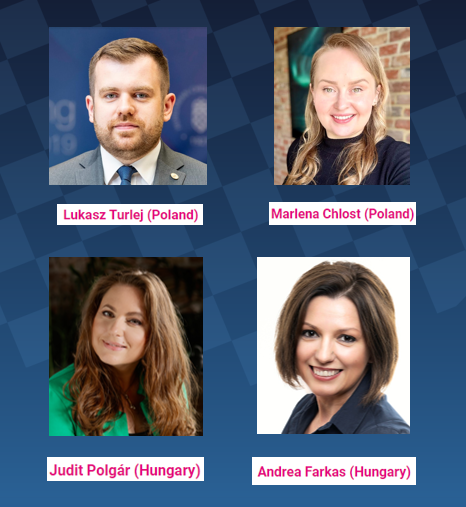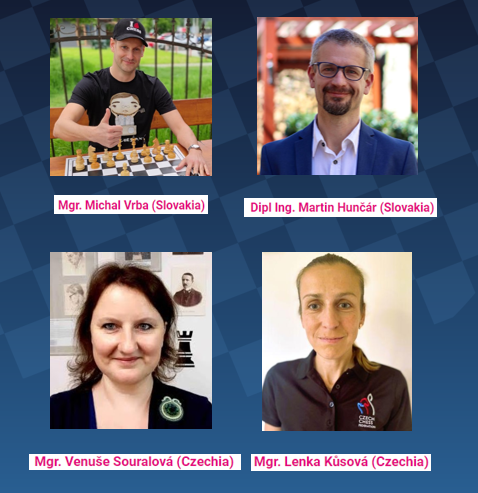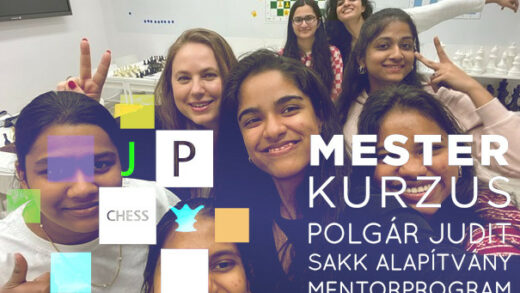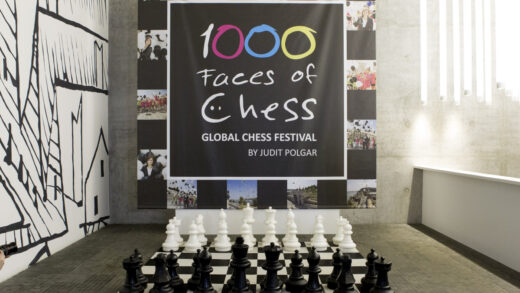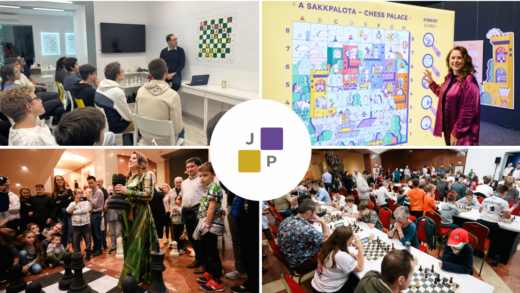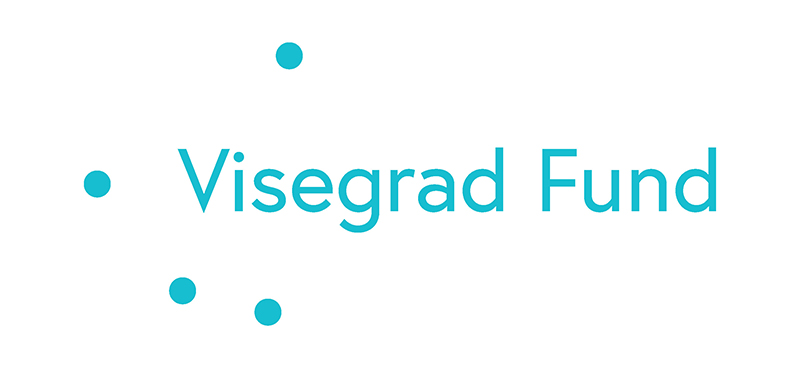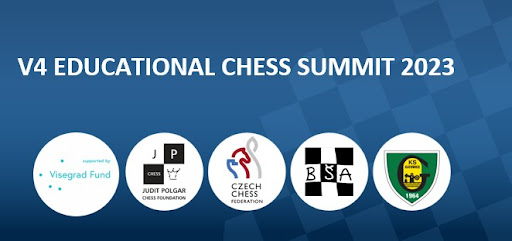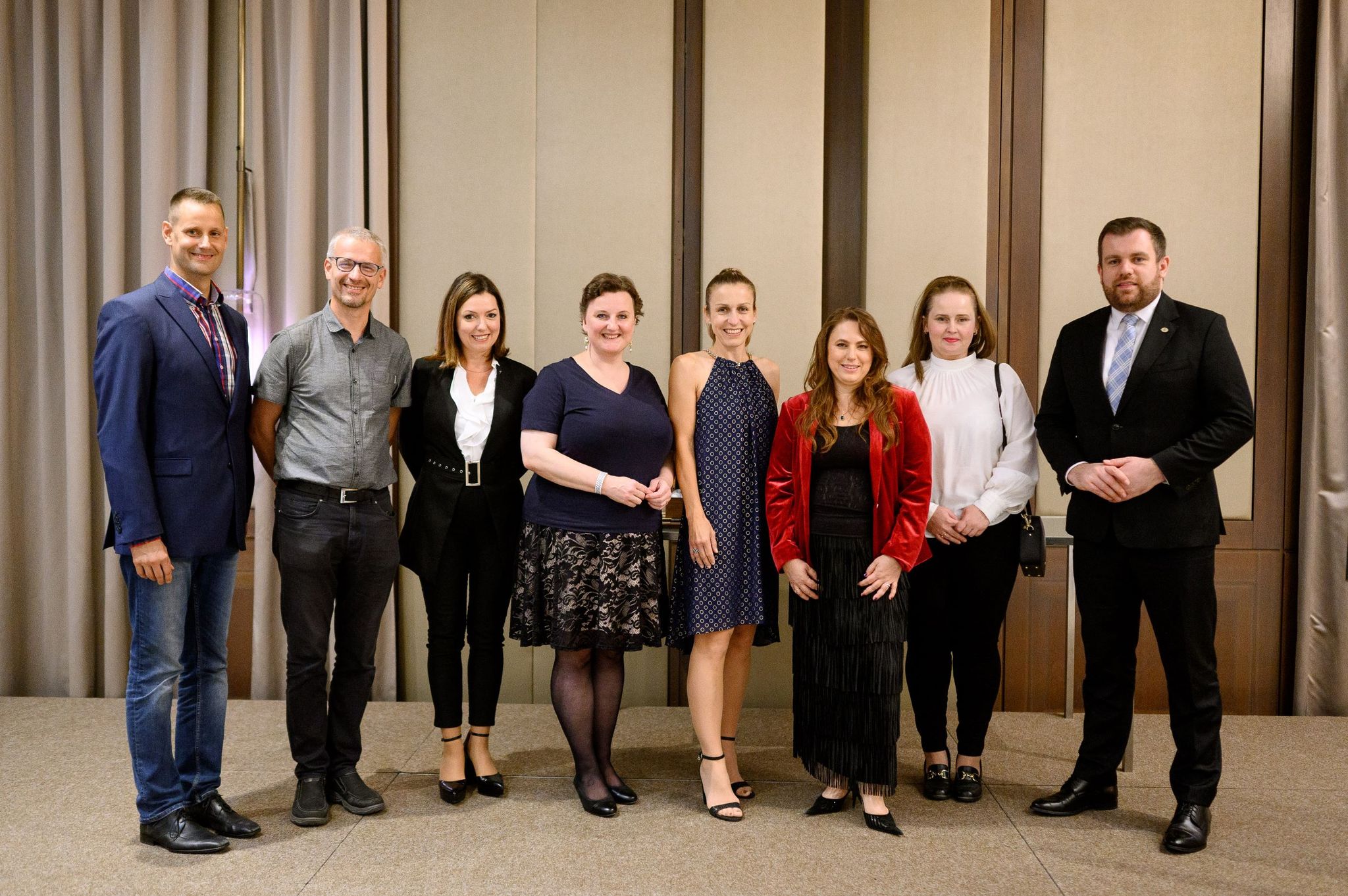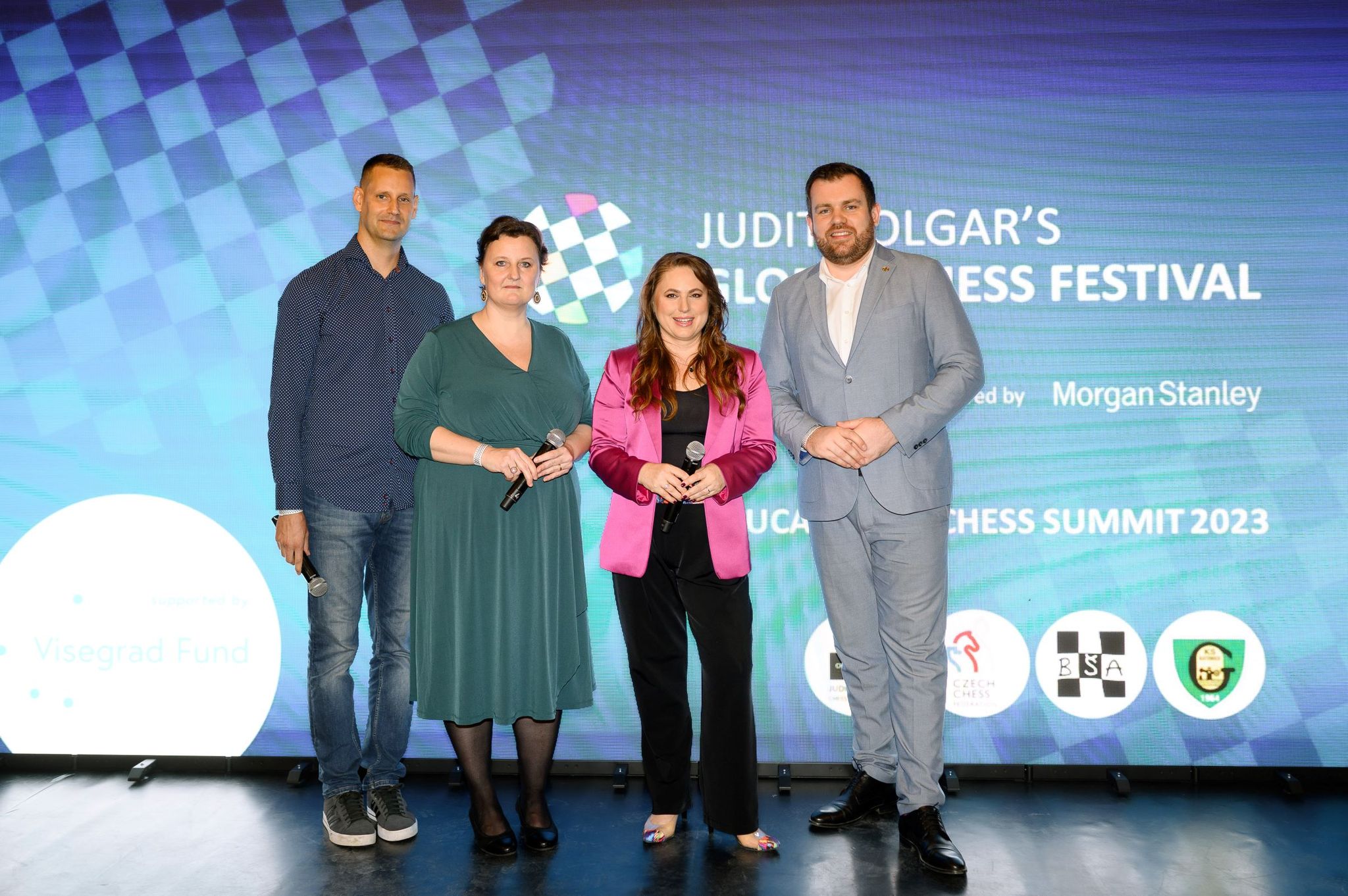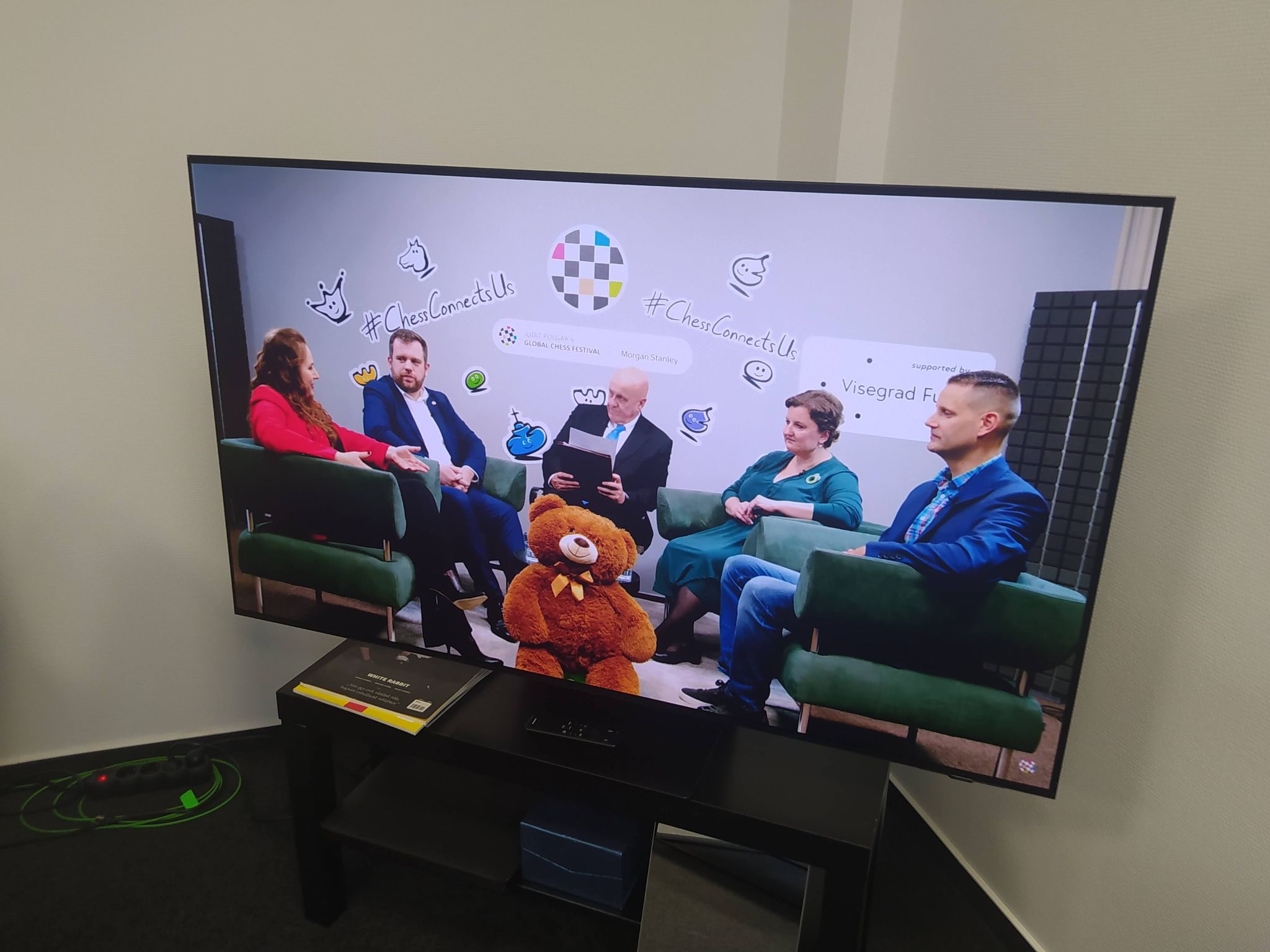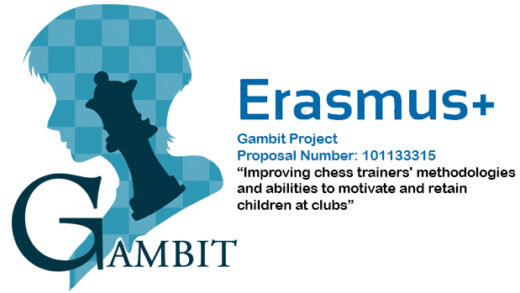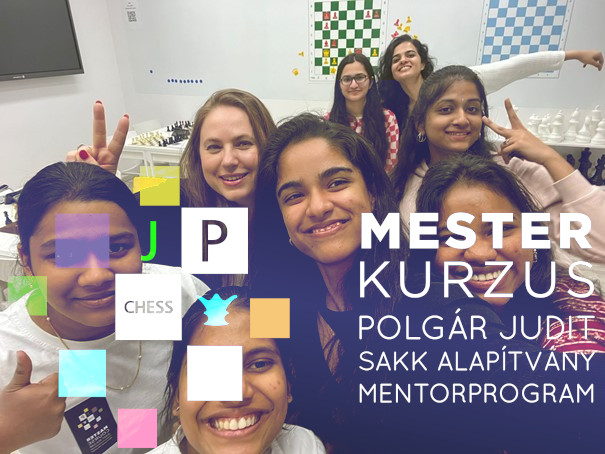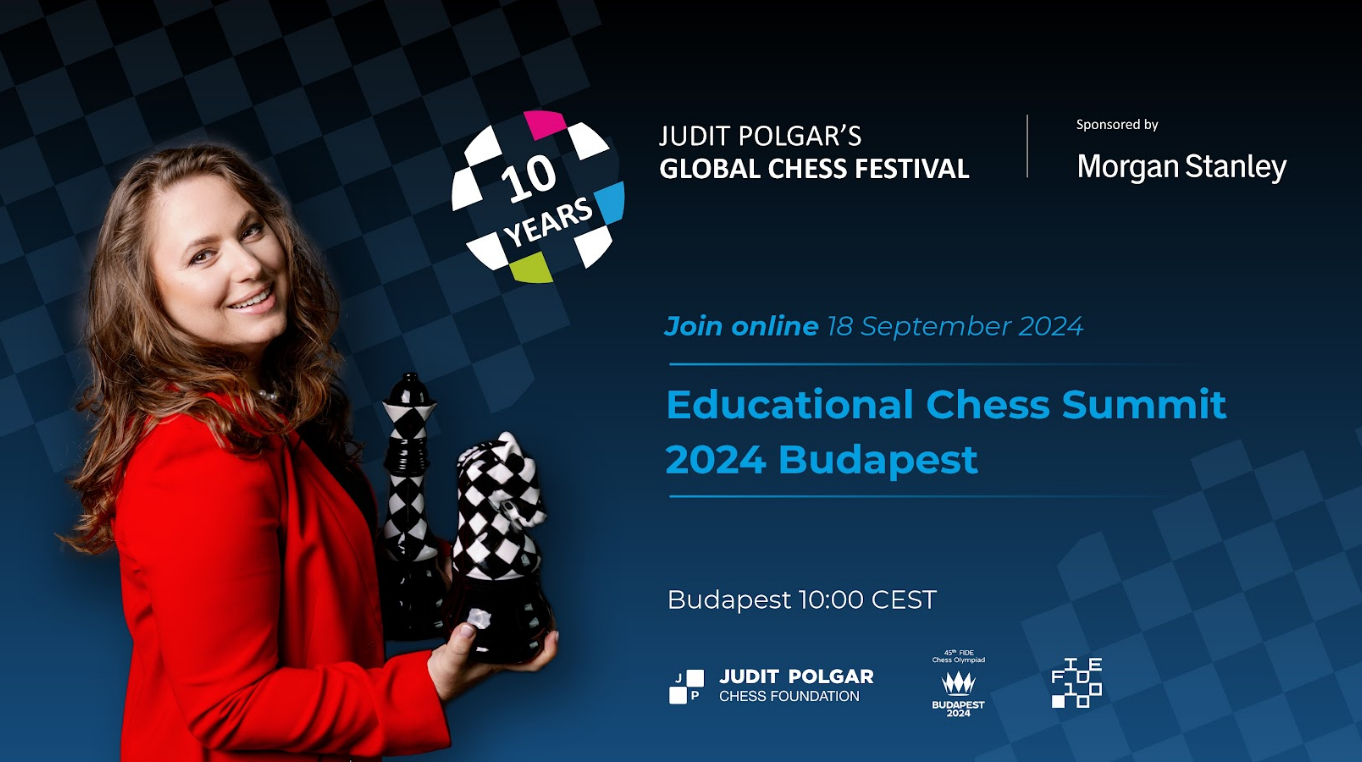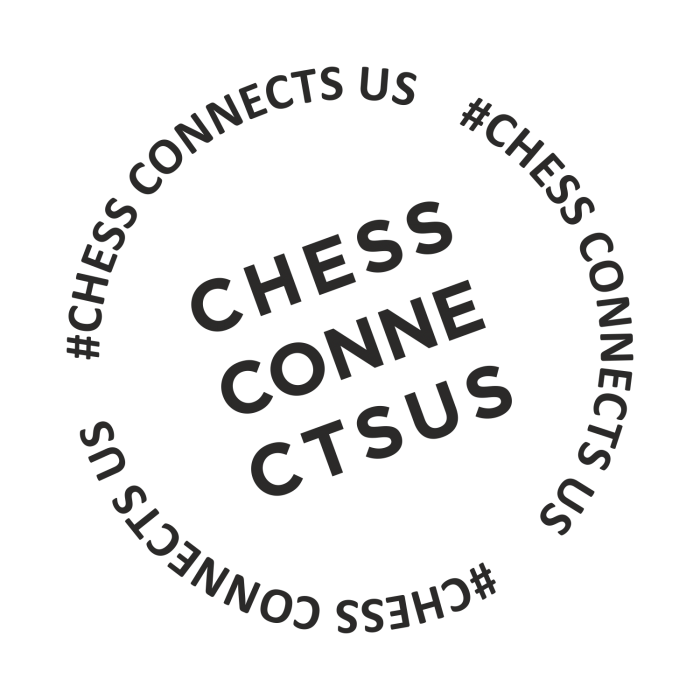The main goal of our project is to share knowledge, resources, and best practices and encourage regional cooperation for the promotion and successful implementation of chess in education programs in V4 countries. To achieve this, we must fully understand the current state of such programs in each country, gather successful initiatives, and create a forum for discussing both the main obstacles to the introduction of chess in schools as well as strategies and tools to alleviate them. The partners, as leaders of the mission of chess education in their respective countries, are uniquely situated to initiate such a discussion, considering they are in possession of both the knowledge and network to identify the main issues.
grant support received by the project from the Visegrad Fund
Date: 14th and 15th October 2023
As a first step, we would conduct a thorough research about chess education programs in the region, involving major stakeholders like federations and educational organizations. The research will provide us crucial data about the most important issues and success factors for different initiatives. At the V4 Educational Chess Summit, participants (invited experts and audience) will discuss these issues as well as the latest innovations, chess education models, and national best practices.
List of partners:
- Czech Chess Federation // www.chess.cz
- Bratislava chess academy “BCA” // www.sachovaakademia.sk
- Wasko Hetman GKS Katowice Chess Club // hetmankatowice.pl
- Judit Polgar Chess Foundation
Project coordinator: Ági Füleky, fuleky.agi@gmail.com
The project is co-financed by the Governments of Czechia, Hungary, Poland and Slovakia through Visegrad Grants from International Visegrad Fund. The mission of the fund is to advance ideas for sustainable regional cooperation in Central Europe.
The first online meeting of the 4 partners
The first online meeting of the 4 partners took place in February 2023. The Judit Polgar Chess Foundation presented the project and outlined the implementation process. The first part of the project is to create a detailed research and analysis of the current state of chess in education in the V4 countries. We will focus on 2 main parts: Gather quantitative data about chess education programs in each country (e.g. number of preschools/schools/academies offering such programs, number of certified teachers, etc.) by creating and sending out a survey to stakeholders and conducting desk research, and research and analyze the characteristics of these programs (teaching methods, tools, funding, challenges according to stakeholders, etc.).
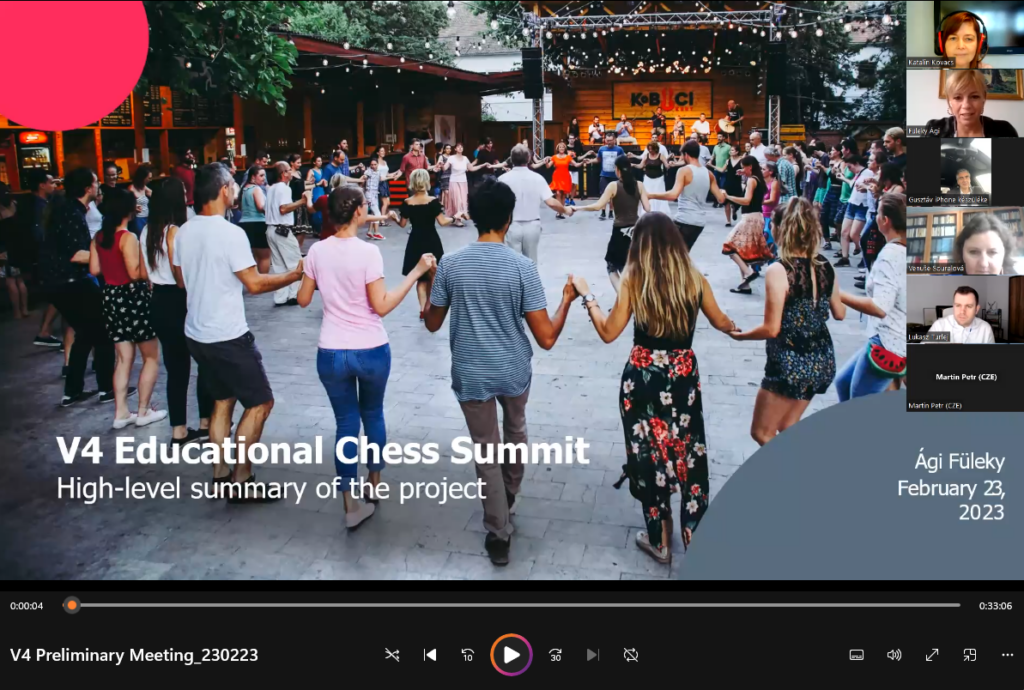
The questions of the survey for kindergartens
The questions of the survey for kindergartens, schools, chess clubs, chess academies and leisure centres have been assembled, reviewed by all partners, and sent out to stakeholders in all four Visegrad countries. The deadline for submitting the questionnaires is the end of May.
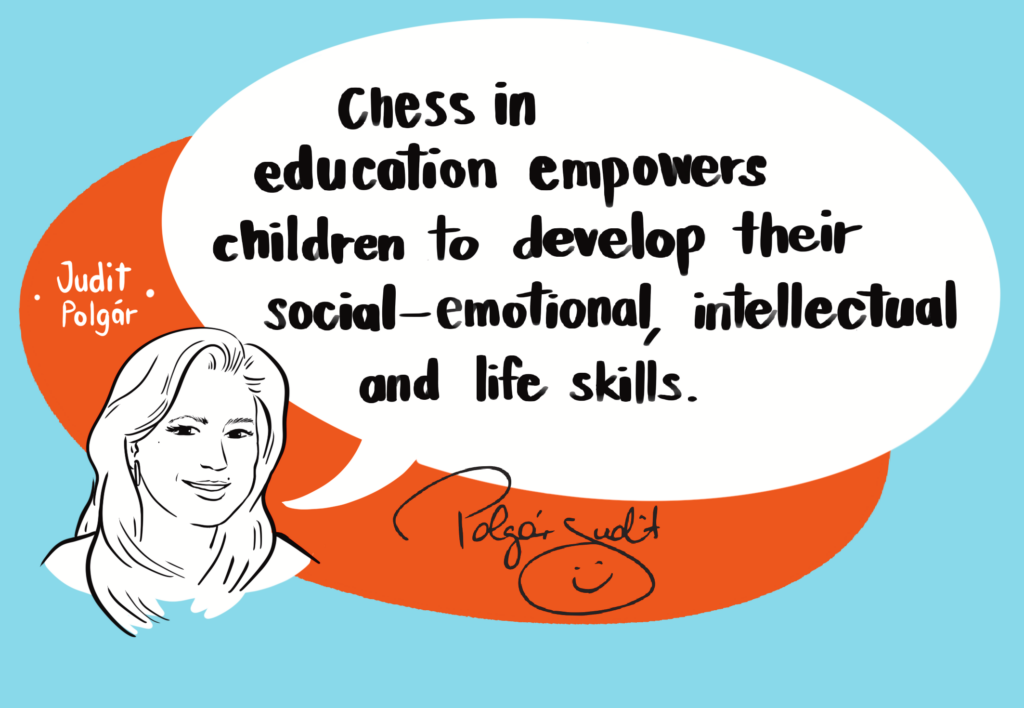
Detailed research and analysis by JPCF and partners on the current state of chess in education in the V4 countries
In the detailed survey of the V4 countries, a total of 2405 institutions and organisations responded to the questions, of which 1375 said they had some form of chess education. Respondents included kindergartens, schools and chess clubs/academies.
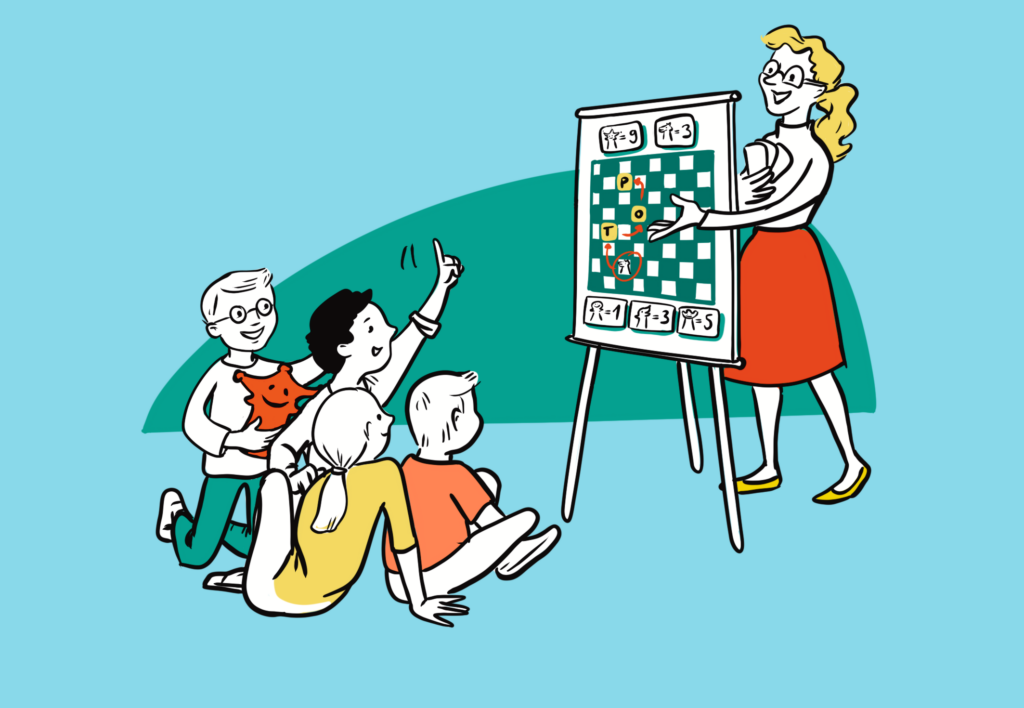
Key conclusions: Chess education and development have numerous positive effects on individuals and society, enhancing cognitive skills, problem-solving abilities, and social interactions. To make chess more motivating and challenging for children, opportunities such as online partner schools, promoting values, easier access to chess, school chess programs, afternoon workshops, and chess clubs and tournaments can be explored. Financial resources are needed for widespread adoption, including training teachers, purchasing equipment, and supporting competitions. Challenges include a lack of coaches, qualified teachers, and funds. A cohesive team, comprehensive educational materials, and prioritizing online chess are essential for success.
Read the full report or the summary.
Press release
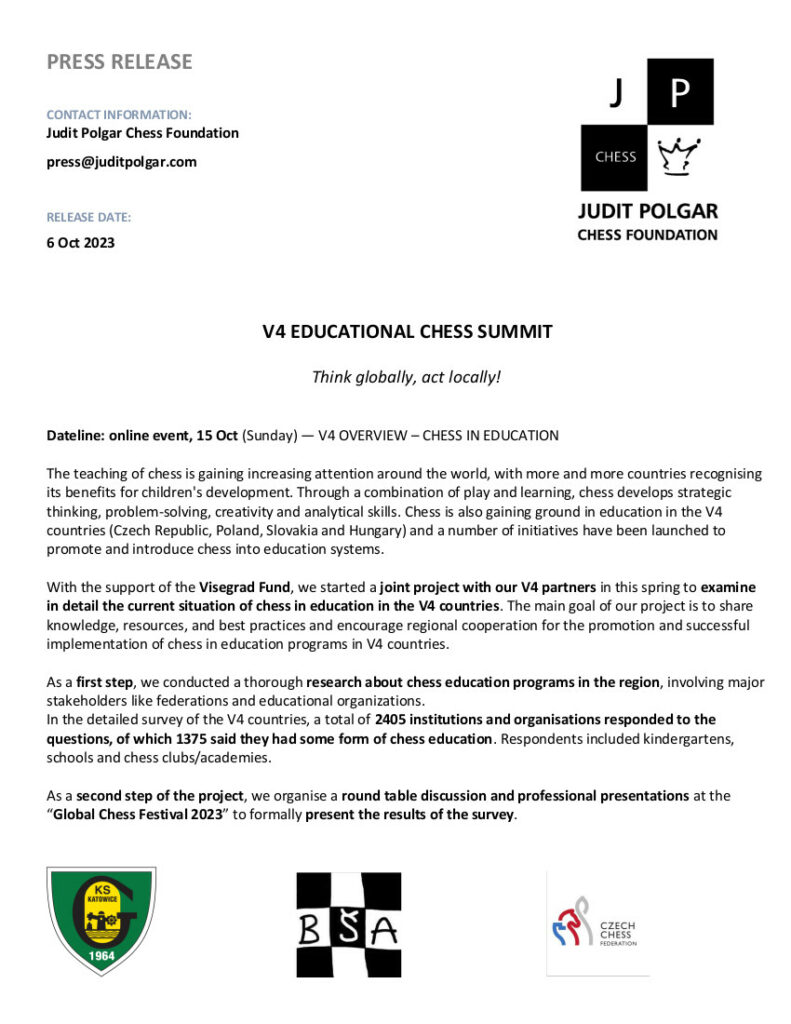
V4 overview – Chess in education – on 15th October
Think globally, act locally! As part of Judit Polgar’s Global Chess Festival, the V4 Overview is a standalone segment of the “Educational Chess Summit 2023” to the general audience. The main objective of the English-language roundtable discussion is to share knowledge, resources, and best practices, stimulate regional cooperation, promote chess, and ensure the successful implementation of chess-related programs in the education systems of the V4 countries. Topics include the most successful educational methods employed in each country, ideas, tools, curriculum materials, and possibilities for adapting them in other countries, challenges faced in jointly shared programs – financing, training, promotion – and opportunities for future collaboration.
PRESENTERS & PARTICIPANTS
Mgr. Michal Vrba (Slovakia)
Founder of Bratislava Chess Academy with the glamorous goal of promoting the game among people outside of the chess community. He has significant experience in the global marketing industry. Presentation with best practices.
Dipl Ing. Martin Hunčár (Slovakia)
Chess trainer of Bratislava Chess Academy who uses creative ways to impress children, including the puppet Šachuľko Matový. Organizer of large chess events (Bratislava chess summer) and other activities e.g. Bike and chess and Run and chess.
Mgr. Venuše Souralová (Czech Republic)
Experienced teacher, Chess in Schools project manager at the Czech Chess Federation since 2018, student of the MPA Sports Diplomacy program at Prague University of Economics and Business.
Mgr. Lenka Kůsová (Czech Republic)
Head of the Women´s Chess Commission in the Czech Republic, member of the Communication and Marketing Commission of the Czech Chess Federation, chess coordinator for schools, chess event organizer.
Lukasz Turlej (Poland)
Secretary General of FIDE, President of the Wasko Hetman GKS Katowice, organizer of the European and World Chess Championships, and the biggest Polish chess Festivals. Promoter of the implementation of chess as a tool in education and in social projects.
Marlena Chlost (Poland)
Chess player, businesswoman, and educator. Founder and CEO of Empie Solutions and ChessGrow – a free platform for learning and chess training, helping develop the skills of chess players worldwide. President of the top-tier club Akademia Szachowa Gliwice, founder of an educational center for children and youth.
Judit Polgár (Hungary)
Grandmaster, Chess Olympic Champion, Educational Ambassador, edu-tainer, founder of the Global Chess Festival.
Andrea Farkas (Hungary)
Educational coordinator. Developer, later project manager of the Chess Playground Program at the Judit Polgar Chess Foundation, technical manager of the EFOP322 project at the Vice Presidency for Content Development and Textbook Publishing of the Education Office.
